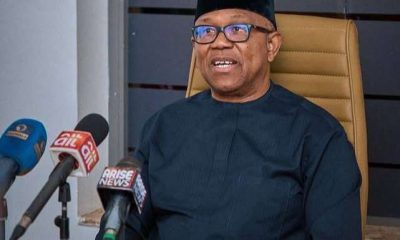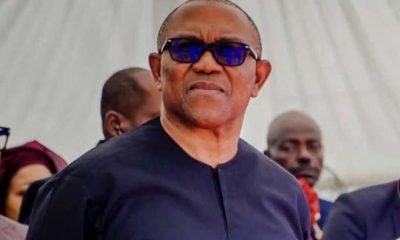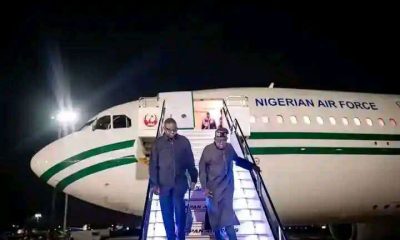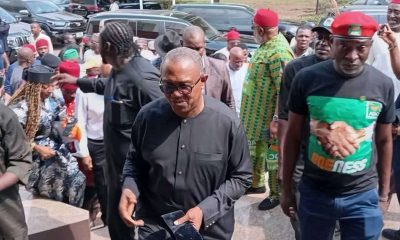Business
Obi slams FG over new 5% fuel tax, says Nigerians ‘can’t breathe’

Former presidential candidate of the Labour Party, Peter Obi, has criticised the Federal Government over its decision to introduce a 5 percent tax on all refined fossil fuel sales, including petrol and diesel, from January 2026.
In a post on his official X handle on Thursday, Obi described the move as ill-timed and insensitive, questioning why citizens who are already struggling should face additional financial burdens.
“When will Nigerians truly breathe? A timely and relevant question, as a new 5% tax on all refined fossil fuel sales, including petrol and diesel, has just been announced by the Federal Government,” Obi wrote.
The former Anambra State governor argued that the new levy will worsen the economic hardship in the country, especially at a time when many Nigerians can barely afford transportation.
He noted that President Bola Tinubu had recently boasted about meeting revenue targets for the year, yet rather than easing the pain of citizens, the government is imposing fresh taxes.
“If our revenues are truly ‘excessive’ as claimed, should they not first be used to fund education, healthcare and pulling Nigerians out of poverty? Why tax citizens who cannot even breathe anymore?” Obi queried.
Obi also faulted the government for failing to provide relief on alternative fuels like Compressed Natural Gas (CNG), which has doubled in price from about ₦230 to ₦450 despite earlier promises of subsidy.
The planned levy is part of a broader government strategy to boost domestic revenue and support Nigeria’s energy transition programme. Under the arrangement, motorists will pay ₦500 on every ₦10,000 worth of petrol purchased, with the tax collected at the point of sale.
Government officials say the measure is designed to discourage excessive petrol use, promote cleaner energy, and reduce carbon emissions. Products such as kerosene, LPG (cooking gas), and CNG are exempted from the tax, as they are considered cleaner alternatives.
However, the policy has triggered criticism from analysts and civil society groups, who warn that it could worsen the cost-of-living crisis. Petrol remains central to transportation in Nigeria, meaning the additional cost could drive up transport fares, food prices, and inflation.
The Nigeria Labour Congress (NLC) and other interest groups are expected to weigh in on the development in the coming weeks, with calls likely for the government to introduce cushioning measures such as subsidies for alternative fuels or public transport support.












